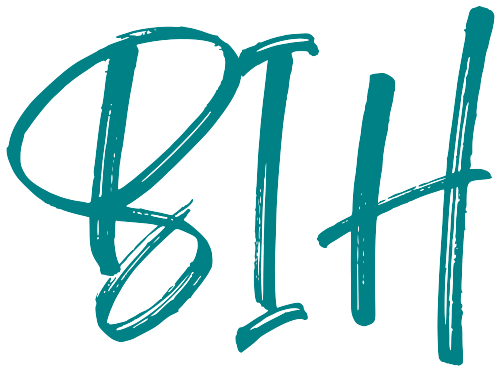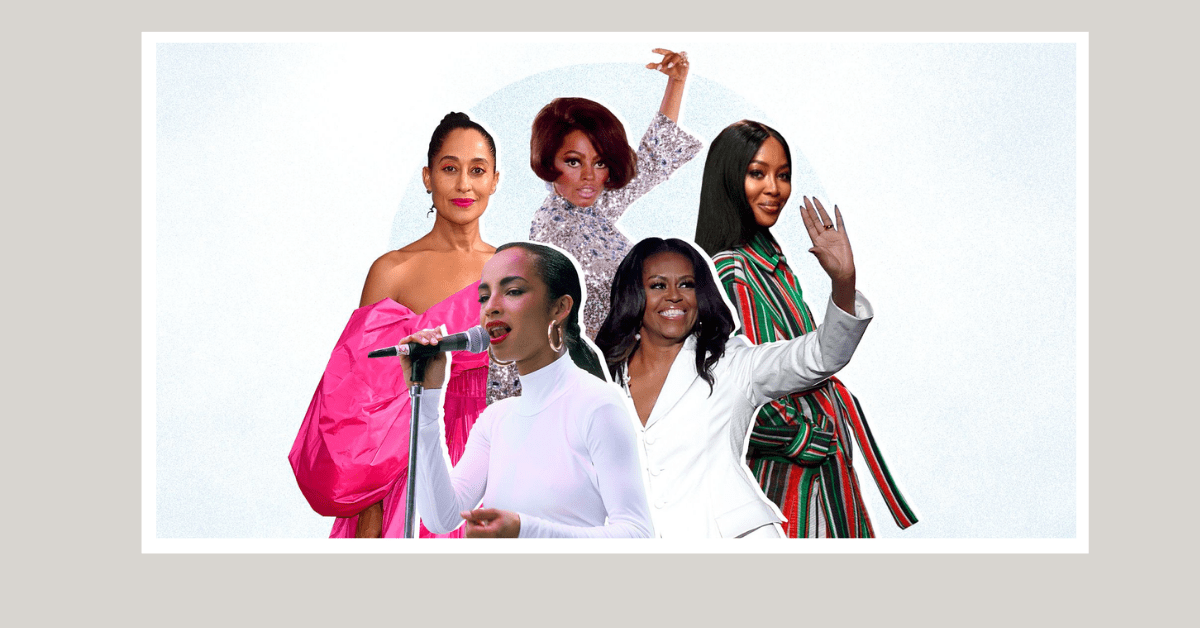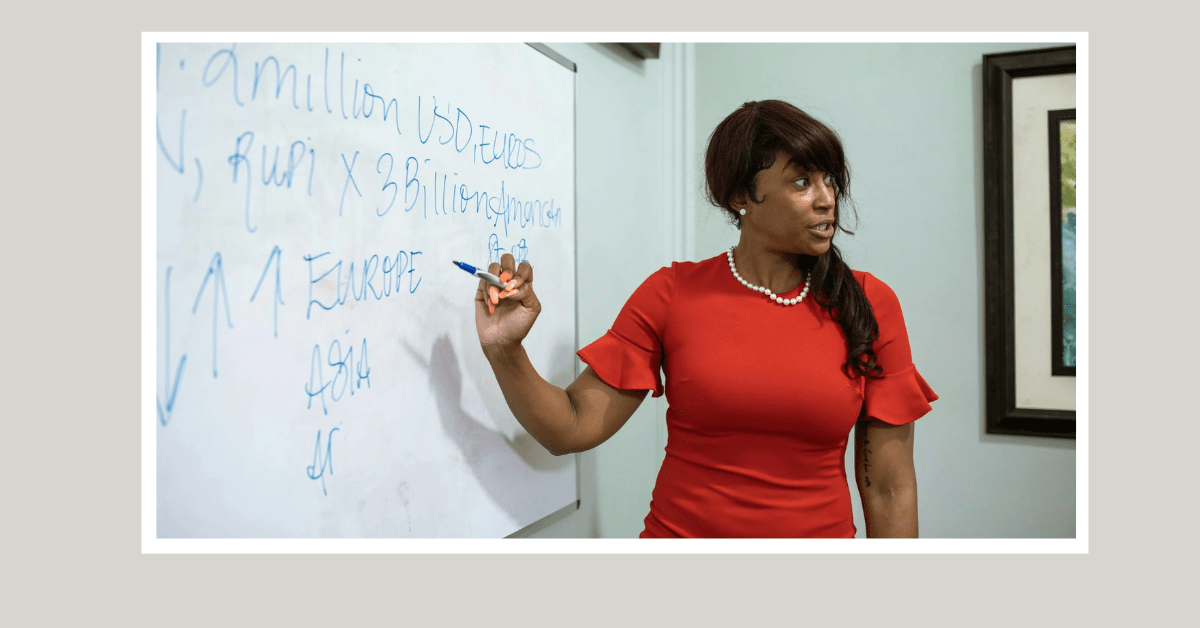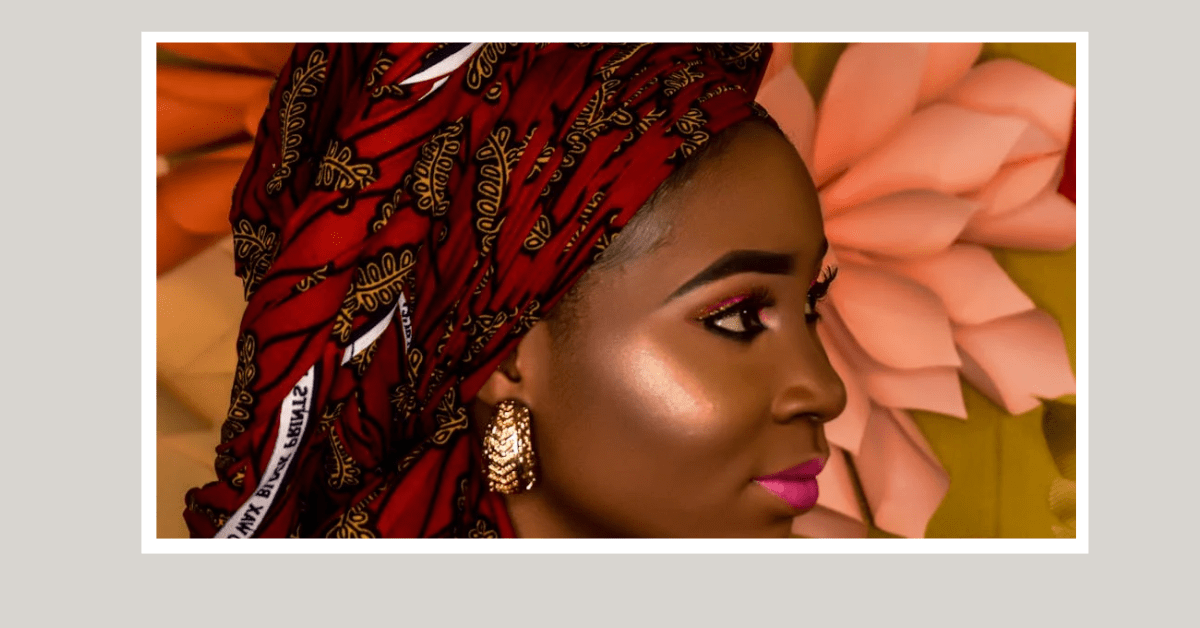Fashion. When we think of this word, we think of clothes, but it’s creating art for some. It’s like, starting from a blank canvas and then creating a masterpiece. Fashion has long been a powerful platform for black women to voice their protests and express their identities. Fashion has been used to make political statements and challenge societal norms. Black women have used clothing and accessories to display slogans, symbols, and images expressing their resistance and calling for social justice.
For example, the Black Lives Matter movement has been widely supported through fashion, with black women wearing t-shirts, hoodies, and hats emblazoned with the movement’s logo and messages. Fashion has helped to reclaim their cultural heritage and celebrate their identity through fashion.
Black Women And Their Voice Through Fashion
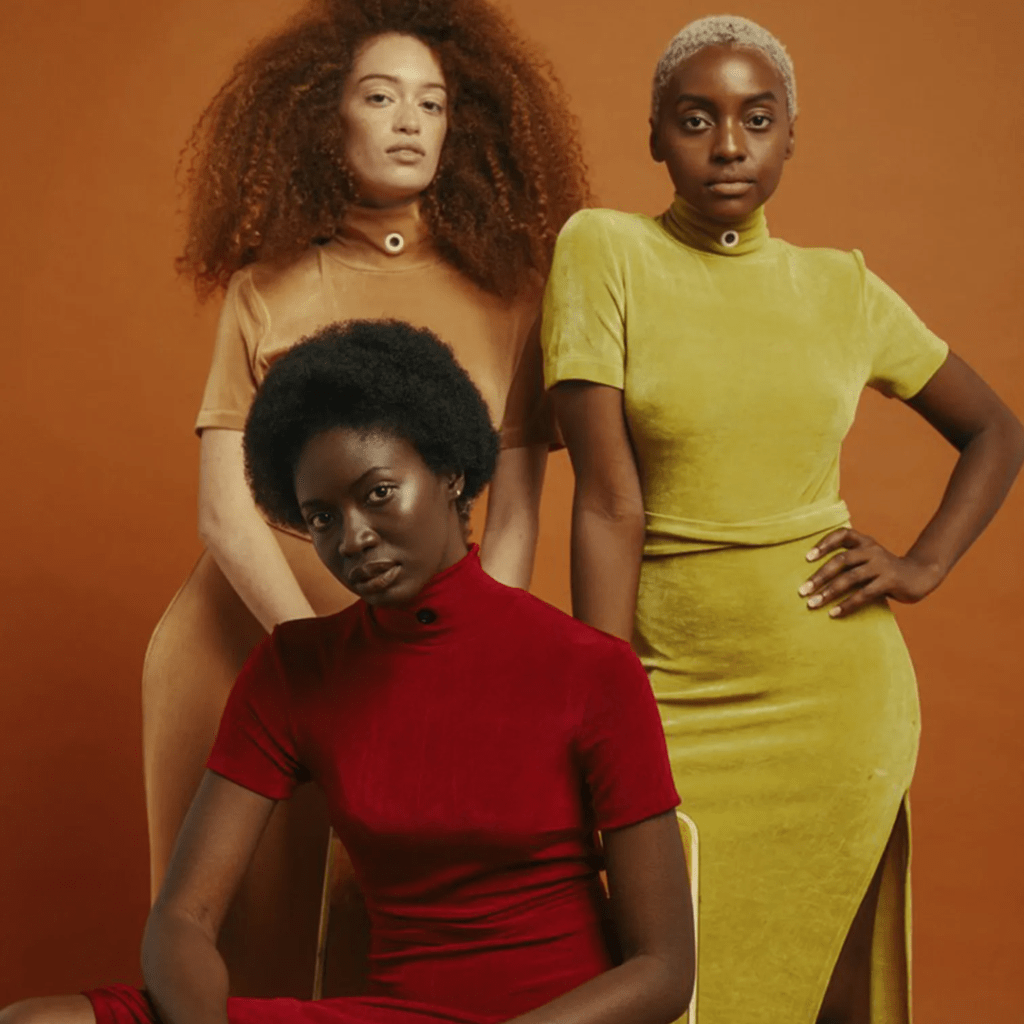
There are a lot of different stereotypes against black women, and there are many different ways they have tackled them. One that speaks the loudest is fashion. Here are some ways fashion has helped black women speak out:
- Traditional African prints, patterns, and textiles have been incorporated into contemporary fashion, allowing black women to showcase their heritage and challenge Eurocentric beauty standards. By embracing their cultural roots, black women use fashion to empower and protest against the erasure of their history.
- Fashion has also played a crucial role in challenging conventional beauty standards for historically marginalized black women. Black women have actively pushed for more excellent representation and inclusivity through fashion shows, campaigns, and editorials.
- By showcasing diverse body types, hairstyles, and skin tones, they have challenged the narrow definitions of beauty perpetuated by the fashion industry, thus protesting against systemic racism and discrimination.
- Black women’s hair has often been a target of discrimination and policing. In response, black women have used fashion to celebrate and embrace their natural hair textures and experiment with various styles and protective hairstyles.
- By rejecting societal expectations and embracing their natural beauty, black women have used fashion as a form of resistance and protest against the Eurocentric beauty ideals that have long dominated the industry. The fashion industry has also historically excluded and marginalized black women.
Black Icons That Spoke Up for Black Women through Fashion:
Many fashion icons have used their influence and resources to give back to the black community. They have launched philanthropic initiatives, mentorship programs, and scholarships to support aspiring black designers, models, and creatives. By providing opportunities and resources, these icons have helped to uplift and empower the next generation of black fashion leaders. Icons that Changed and shaped fashion for black women:
Michelle Obama:

Michelle Obama has significantly shaped fashion for black women through her style and how she has used fashion to promote inclusivity, diversity, and empowerment. As the first African American First Lady of the United States, Michelle Obama became a powerful fashion influencer and a role model for millions of women worldwide.
She also frequently chose to wear accessible and affordable fashion brands, such as J.Crew and Target, alongside high-end designer pieces. She highlighted these designers and helped bring their talent and creativity into the mainstream fashion industry. This approach made her style relatable and attainable for women from various backgrounds, proving that fashion doesn’t have to be exclusive or expensive to be stylish.
Her fashion choices celebrated diverse body types. She embraced sleeveless and form-fitting dresses, showcasing her well-toned arms and challenging conventional beauty standards. Her confidence and style helped redefine beauty norms and encouraged women, particularly black women, to embrace their bodies and feel comfortable in their skin. She recognized the power of clothing to convey messages and stories, often using her fashion choices strategically to support causes she cared about.
Serena Williams:
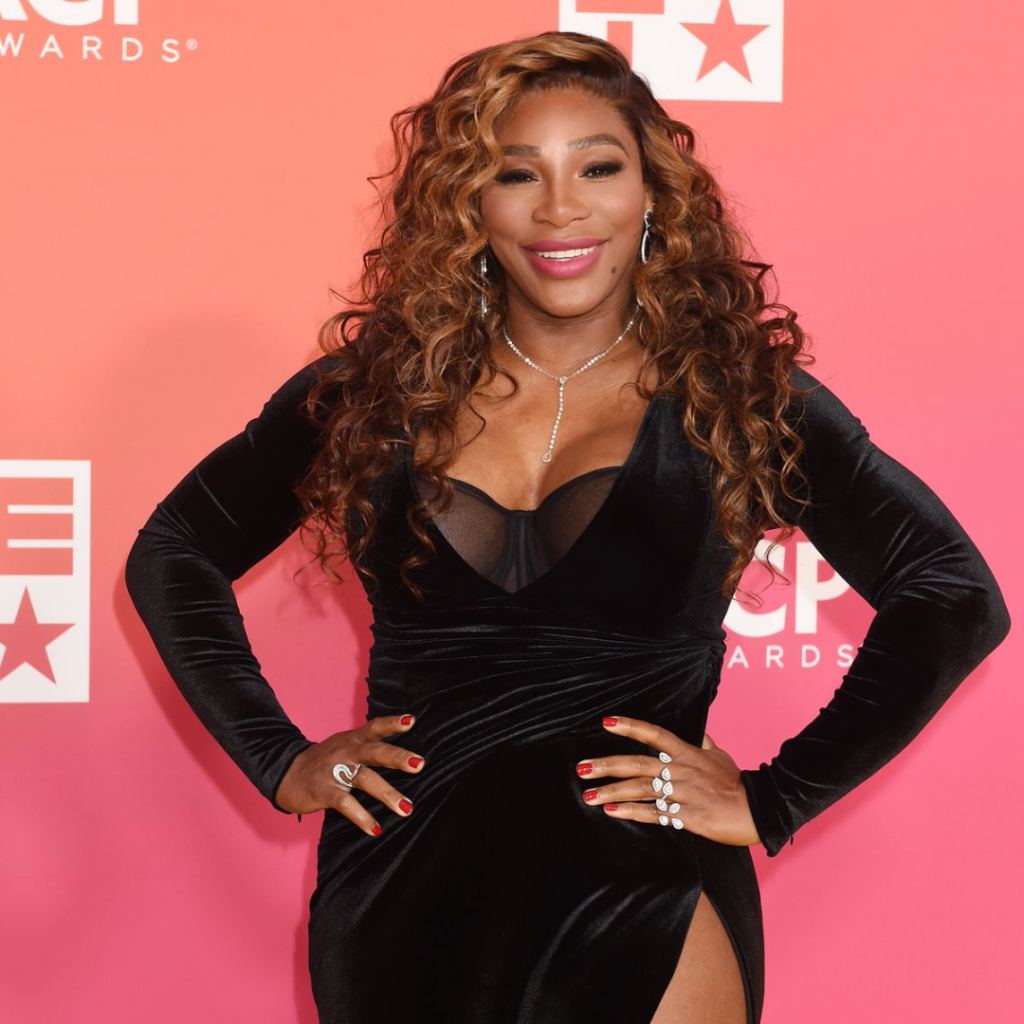
Serena Williams has made significant contributions to shaping fashion for black women through her style, entrepreneurial ventures, and advocacy for diversity and inclusivity in the fashion industry. She is widely recognized as a fashion icon for her bold and fearless sense of style on and off the tennis court. She has consistently pushed boundaries with her fashion choices, embracing vibrant colors, unique designs, and statement pieces. Her confidence and self-expression have inspired many black women to embrace their individuality and take risks with their fashion choices.
In 2018, Serena launched her eponymous fashion line, the Serena Williams Collection, which caters to diverse body types and embraces inclusivity. The collection features a wide range of sizes, including extended sizes, offering more options for women of all shapes and sizes. By prioritizing inclusivity, Serena has challenged the traditional beauty standards prevalent in the fashion industry and empowered black women to embrace their bodies and feel confident in their clothing.
Halle Berry:
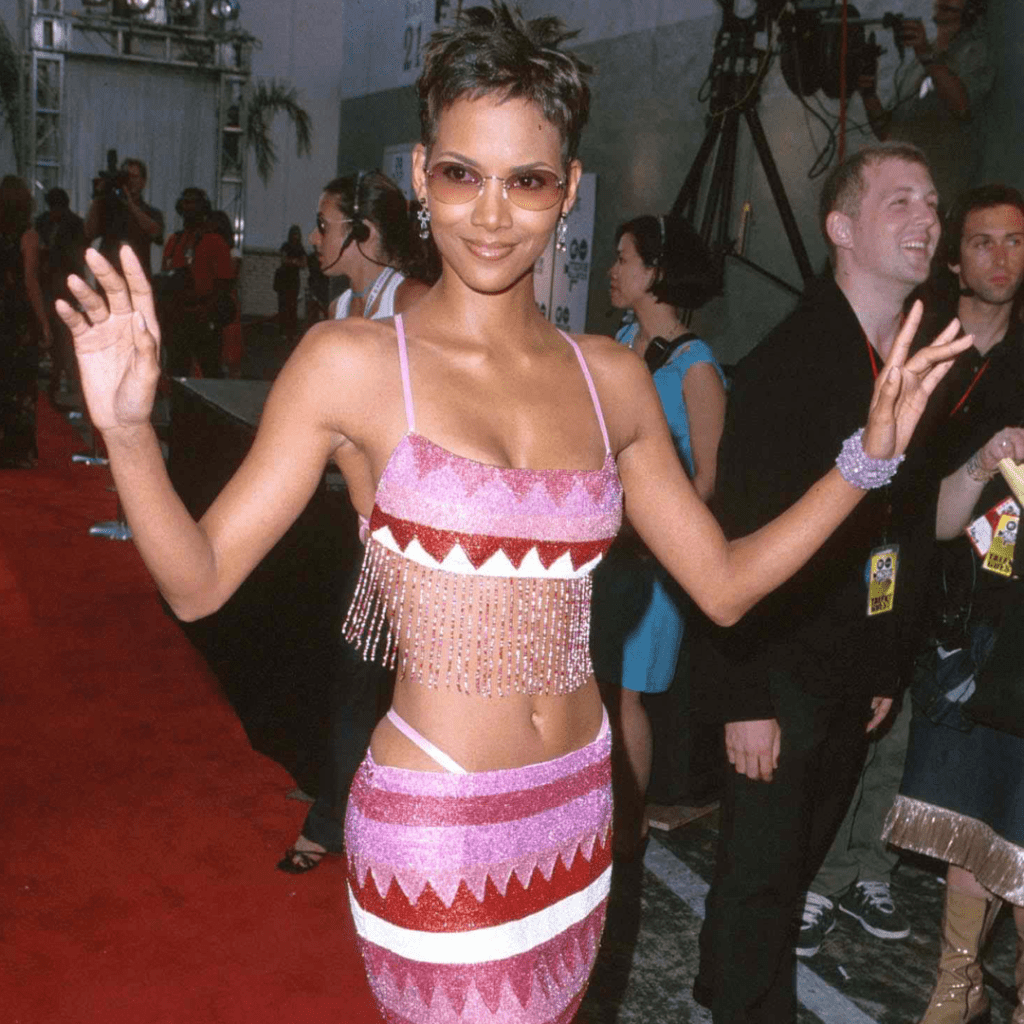
Halle Berry’s short, natural hairstyle in the movie “Boomerang” (1992) gained attention and became a popular trend. This look challenged the conventional beauty standards that emphasized long, straight hair. It encouraged black women to embrace their natural hair texture and inspired many to experiment with short hairstyles, showcasing the versatility and beauty of natural black hair.
Halle Berry has collaborated with various fashion brands and designers. She became the face of Revlon in 1996, becoming the first black woman to represent the brand. This partnership further expanded the visibility and representation of black women in the beauty and fashion industry. Halle Berry’s off-duty style has also influenced black women’s street fashion. She has been photographed in casual yet chic outfits emphasizing comfort, simplicity, and timeless elegance.
Her ability to effortlessly combine classic pieces with contemporary trends has resonated with many black women, inspiring them to curate stylish and accessible everyday looks.
Lupita Nyong’o

Lupita Nyong’o has significantly impacted the fashion industry, particularly for black women, through her impeccable style choices and promotion of diversity and representation. Lupita Nyong’o challenged conventional beauty norms by embracing her natural hair, dark skin, and unique features.
As a vocal advocate for diversity and representation in the entertainment industry, Lupita Nyong’o has used her platform to address the lack of representation of black women in fashion. She has spoken about inclusivity’s importance and called for more diverse and authentic portrayals of black women in advertising and media. Through her fashion choices and public appearances, she has become a symbol of confidence and self-expression for black women.
Conclusion
Black women need representation, and famous people who influence others do everything they can to make them feel seen. They are standing up for themselves, for the respect that they deserve. Support them, and don’t bring them down!
